Alan Turing was born 108 years ago today. He was a computer scientist, a mathematician, a philosopher, and a victim of homophobia.
His work saved between 2-14 million lives in WWII.
Bigotry and intolerance drove him to suicide.
Here is some of what he gave to the world: [1/20]
His work saved between 2-14 million lives in WWII.
Bigotry and intolerance drove him to suicide.
Here is some of what he gave to the world: [1/20]
Historically, Turing is best known for his efforts in wartime codebreaking. During WWII, the Nazi forces used a machine called Enigma, which functioned as a cypher that changes settings on each keypress, to encrypt messages and communicate the location and time of air raids.
Working as part of a top-secret British operation run at Bletchley park, Turing built an electromechanical device, the Bombe, which one of the first (very special-purpose) computers, to search the space of cypher settings and break the German encryption.
The Bombe would search through a graph representing the space of possible cipher mappings. Predictable portions of the message, such as the frequent use of "Heil Hitler", helped narrow down the search space. The encryption keys changed each day, so time was of the essence.
Valid graphs were sent to one of the Bombes for decryption. These were operated by a team of women (the world& #39;s first sysadmins were women!)
The codebreaking efforts by Turing and these remarkable women and men shortened WWII an estimated two years, saving millions of lives.
The codebreaking efforts by Turing and these remarkable women and men shortened WWII an estimated two years, saving millions of lives.
Outside of wartime efforts, Turing& #39;s greatest contribution to theoretical computer science was arguably his work on computability. Computability theory deals with what types of problems can be solved on a computing device (not all problems are solvable by a computer!)
In a 1936 paper, Turing described a "universal computing machine" (now known as a Turing Machine) which manipulates symbols on an infinite strip of tape according to a table of rules. https://twitter.com/bencbartlett/status/1189644259244175360">https://twitter.com/bencbartl...
Turing showed that his machine would be capable of performing any conceivable mathematical computation that could be represented algorithmically.
He also proved that there exist problems, such as the halting problem, which are impossible to compute solutions to in finite time.
He also proved that there exist problems, such as the halting problem, which are impossible to compute solutions to in finite time.
Modern computers are just very advanced implementations of the model of computation that is a Turing Machine.
(Side note: around the same time, Alonzo Church derived a similar result using lambda calculus. The Church-Turing thesis shows these computational models are equivalent)
(Side note: around the same time, Alonzo Church derived a similar result using lambda calculus. The Church-Turing thesis shows these computational models are equivalent)
A man of many talents, Turing also made seminal contributions to mathematical biology. In a 1952 paper, "The Chemical Basis of Morphogenesis", he described how patterns in nature such as striped skin (now called Turing patterns) can arise spontaneously from a homogenous state.
Predating the machine learning revolution by >50 years, Turing also speculated about the possibility of computers to exhibit intelligence and to learn. He theorized that the brain is an "unorganized machine" which can be "trained" through experience to learn how to think.
The Turing test is the canonical test of a machine& #39;s ability to (appear to) think.
In a three-player game he called "the imitation game" (where the movie gets its title), an examiner blindly converses with a human and a computer and attempts to deduce which is the computer.
In a three-player game he called "the imitation game" (where the movie gets its title), an examiner blindly converses with a human and a computer and attempts to deduce which is the computer.
In his later years, Turing developed software for some of the first general-purpose computers.
He also developed one of the first chess AIs! In 1952, he attempted to program his chess AI, the "Turochamp", on a Ferranti Mark 1.
He also developed one of the first chess AIs! In 1952, he attempted to program his chess AI, the "Turochamp", on a Ferranti Mark 1.
The Ferranti lacked sufficient computing power to run the program, so instead, Turing himself "ran" the program by flipping through the pages of his algorithm!
Although it took him about 30min per move, it "played a recognizable game of chess", according to Gary Kasparov
Although it took him about 30min per move, it "played a recognizable game of chess", according to Gary Kasparov
Despite his efforts to help Britain win the war and his groundbreaking scientific contributions, Alan Turing died a criminal, convicted for the crime of being gay.
He was forced to endure chemical castration in 1952 and committed suicide two years later.
He was forced to endure chemical castration in 1952 and committed suicide two years later.
The motive for his suicide at age 41 remains unclear.
A half-eaten apple was found at his side. The coroner ruled his death a suicide by poisoning. Turing& #39;s family disagreed with this conclusion.
The apple was never forensically examined.
A half-eaten apple was found at his side. The coroner ruled his death a suicide by poisoning. Turing& #39;s family disagreed with this conclusion.
The apple was never forensically examined.
The British government did not apologize for his treatment until 57 years later in 2009.
"We’re sorry, you deserved so much better", wrote then prime minister Gordon Brown. "This recognition ... is another step towards equality and long overdue."
"We’re sorry, you deserved so much better", wrote then prime minister Gordon Brown. "This recognition ... is another step towards equality and long overdue."
In 2017, the "Alan Turing law" retroactively pardoned men who were convicted under homosexuality laws.
When it was passed, 15,000 queer men were eligible for pardon.
Another 50,000 had already died.
When it was passed, 15,000 queer men were eligible for pardon.
Another 50,000 had already died.
Alan Turing has always been my historical role model.
In his life, he embodied brilliance and curiosity in the face of adversity.
In his death, he highlights the need for tolerance, inclusion, and diversity, both within academia and in the world at large.
In his life, he embodied brilliance and curiosity in the face of adversity.
In his death, he highlights the need for tolerance, inclusion, and diversity, both within academia and in the world at large.
Happy birthday Alan Turing, and happy #PrideMonth  https://abs.twimg.com/hashflags... draggable="false" alt=""> everyone
https://abs.twimg.com/hashflags... draggable="false" alt=""> everyone  https://abs.twimg.com/emoji/v2/... draggable="false" alt="❤️" title="Rotes Herz" aria-label="Emoji: Rotes Herz">
https://abs.twimg.com/emoji/v2/... draggable="false" alt="❤️" title="Rotes Herz" aria-label="Emoji: Rotes Herz">

 Read on Twitter
Read on Twitter![Alan Turing was born 108 years ago today. He was a computer scientist, a mathematician, a philosopher, and a victim of homophobia.His work saved between 2-14 million lives in WWII.Bigotry and intolerance drove him to suicide.Here is some of what he gave to the world: [1/20] Alan Turing was born 108 years ago today. He was a computer scientist, a mathematician, a philosopher, and a victim of homophobia.His work saved between 2-14 million lives in WWII.Bigotry and intolerance drove him to suicide.Here is some of what he gave to the world: [1/20]](https://pbs.twimg.com/media/EbOfFApUMAUSIv6.png)
![Alan Turing was born 108 years ago today. He was a computer scientist, a mathematician, a philosopher, and a victim of homophobia.His work saved between 2-14 million lives in WWII.Bigotry and intolerance drove him to suicide.Here is some of what he gave to the world: [1/20] Alan Turing was born 108 years ago today. He was a computer scientist, a mathematician, a philosopher, and a victim of homophobia.His work saved between 2-14 million lives in WWII.Bigotry and intolerance drove him to suicide.Here is some of what he gave to the world: [1/20]](https://pbs.twimg.com/media/EbOfJZkUcAAEvWm.jpg)
![Alan Turing was born 108 years ago today. He was a computer scientist, a mathematician, a philosopher, and a victim of homophobia.His work saved between 2-14 million lives in WWII.Bigotry and intolerance drove him to suicide.Here is some of what he gave to the world: [1/20] Alan Turing was born 108 years ago today. He was a computer scientist, a mathematician, a philosopher, and a victim of homophobia.His work saved between 2-14 million lives in WWII.Bigotry and intolerance drove him to suicide.Here is some of what he gave to the world: [1/20]](https://pbs.twimg.com/media/EbOfMXoUcAAEFSa.jpg)

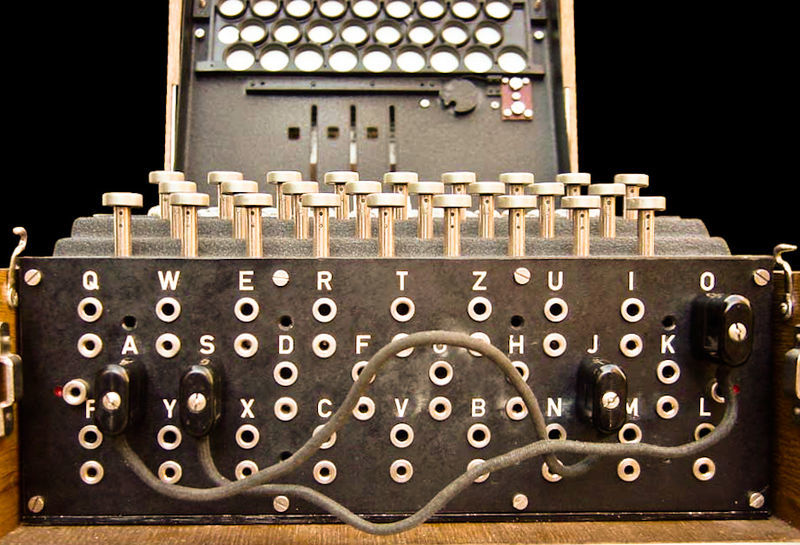
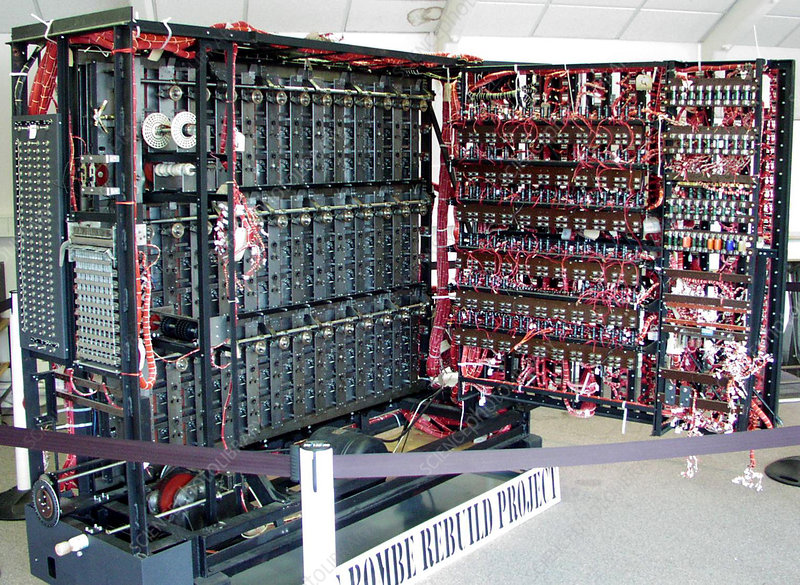
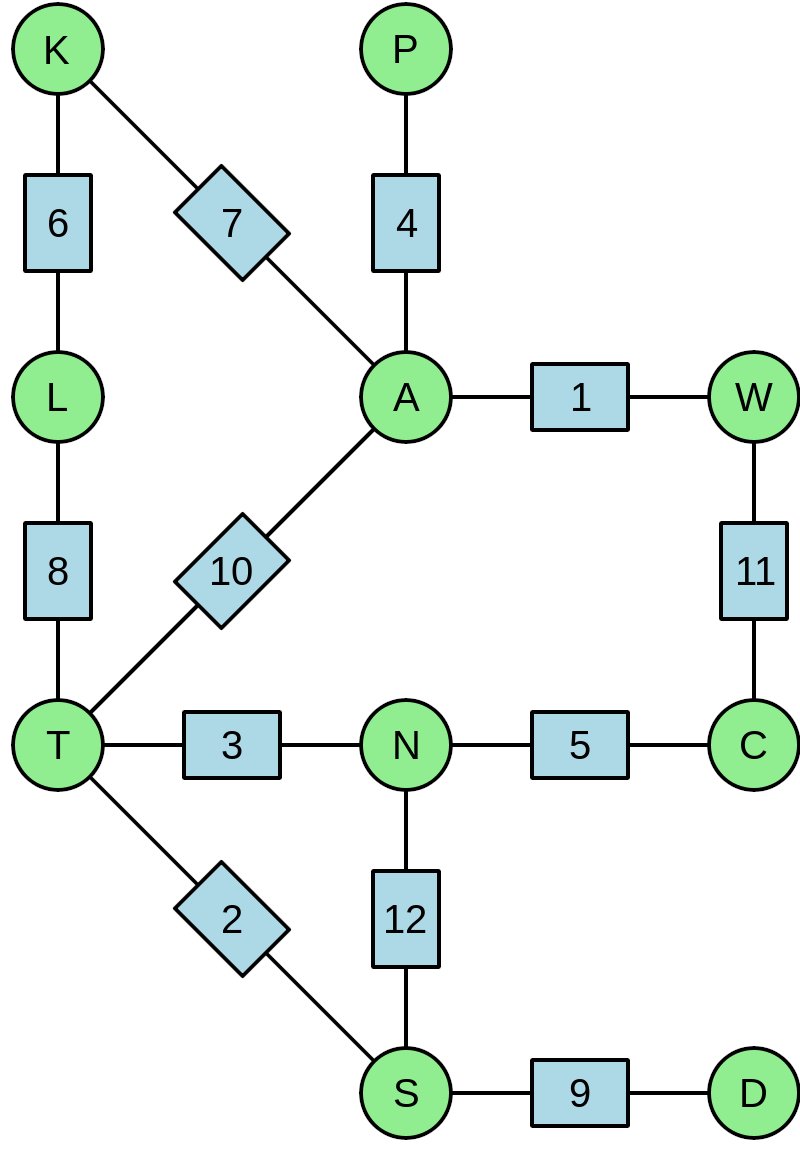
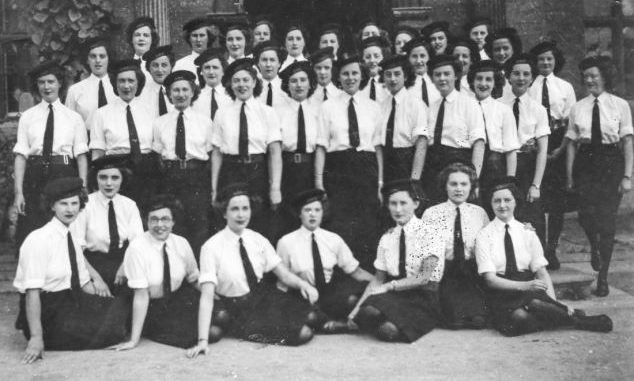
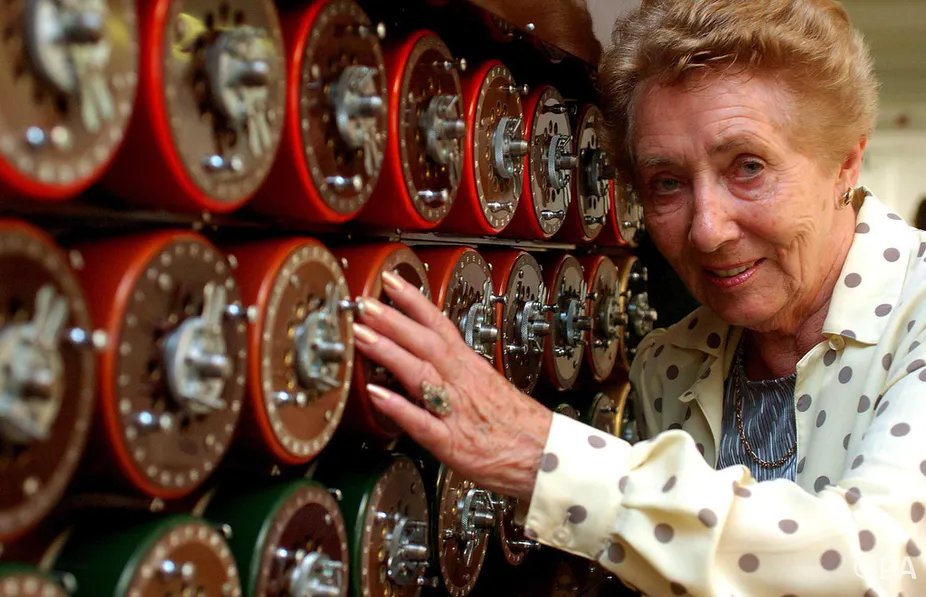


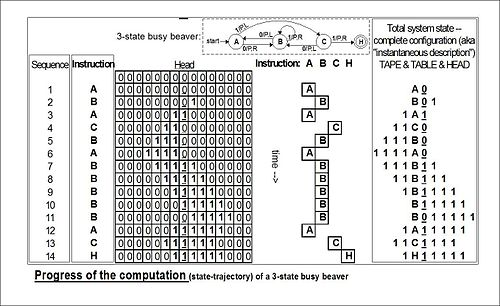

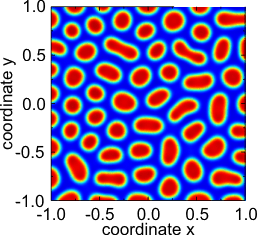



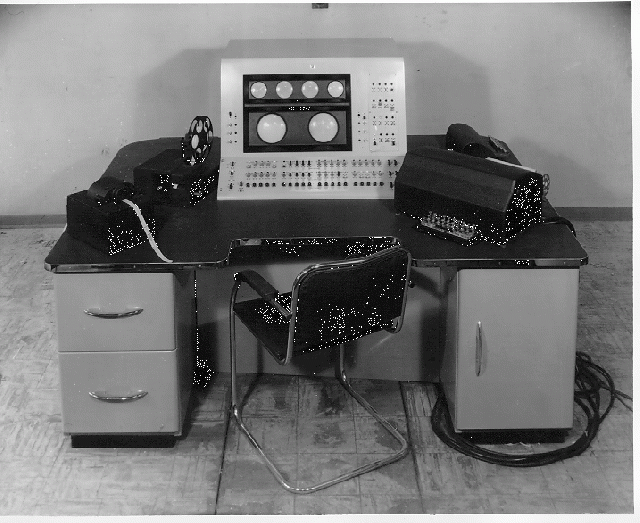
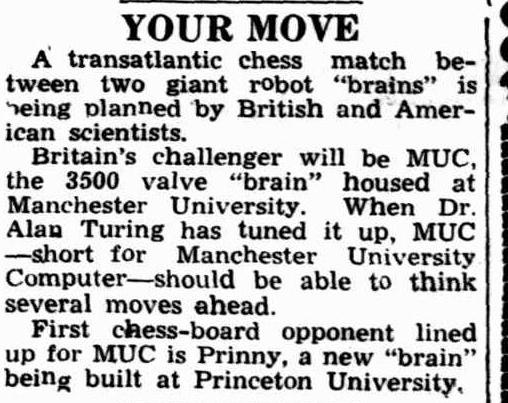
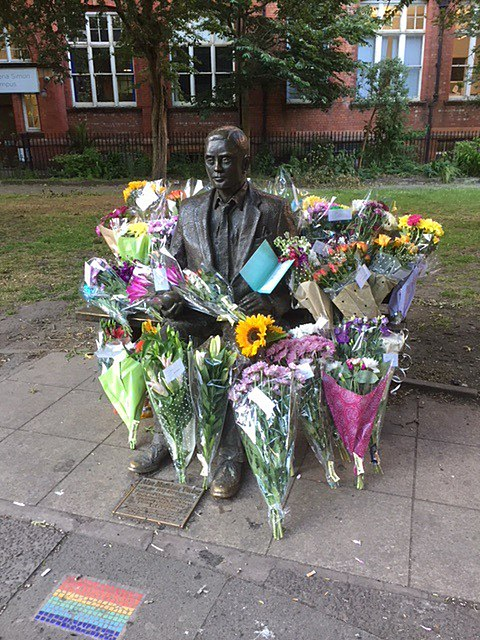

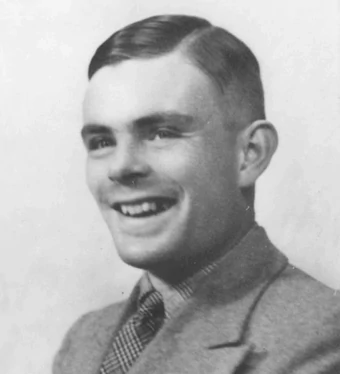 everyone https://abs.twimg.com/emoji/v2/... draggable="false" alt="❤️" title="Rotes Herz" aria-label="Emoji: Rotes Herz">" title="Happy birthday Alan Turing, and happy #PrideMonth https://abs.twimg.com/hashflags... draggable="false" alt=""> everyone https://abs.twimg.com/emoji/v2/... draggable="false" alt="❤️" title="Rotes Herz" aria-label="Emoji: Rotes Herz">" class="img-responsive" style="max-width:100%;"/>
everyone https://abs.twimg.com/emoji/v2/... draggable="false" alt="❤️" title="Rotes Herz" aria-label="Emoji: Rotes Herz">" title="Happy birthday Alan Turing, and happy #PrideMonth https://abs.twimg.com/hashflags... draggable="false" alt=""> everyone https://abs.twimg.com/emoji/v2/... draggable="false" alt="❤️" title="Rotes Herz" aria-label="Emoji: Rotes Herz">" class="img-responsive" style="max-width:100%;"/>


